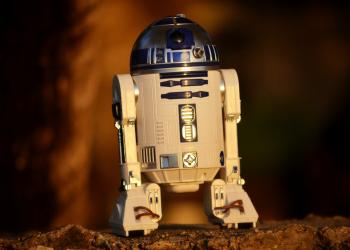
From Gillette to Tesla
Know divergent thinking or why insiders were unable to anticipate change.
"There are clouds on the horizon of thought and the same air we breathe is permeated with life that predicts the birth of a wonderful change".
The author of the phrase is King Camp Gillette, the inventor of the disposable razor blade. At the end of the 19th century, this invention meant a product revolution, making it for the first time a disposable and cheaper blade. It was not a path of roses: he had to work ten years on his idea before carrying it out. As he said, "I knew little about razor blades and virtually nothing about steel, so I could not foresee the difficulties I was going to go through before the razor blade was a success. But I believed in it ... I didn't know enough to quit. If I had technical training, I would have abandoned or probably not started".
This is the basis of divergent thinking - also called lateral thinking, which consists of the search for alternatives, or creative and different possibilities from the usual ones, for the resolution of a problem.
Today the Gillette business model (cheap razors and disposable blades) is found in printers (manufacturer makes money with cartridges), also on the PlayStation (whose manufacturing cost is higher than its price: Sony makes money with video games) and more recently in Nespresso (business based on selling capsules).

Divergent thinking is behind great paradigm shifts. None of the major mobile manufacturers in 2000 announced the arrival of the smartphone. Precisely because they were specialists (insiders) from the previous model, and didn't know another reality for years. This is a constant in innovation: specialists of a business model are unable to see another reality. Technological breakthroughs are never easily anticipated. It was an outsider in the world of telephony, Apple, who came to revolutionize it with a whole new approach.
The ideas that cause a paradigm shift are disruptive innovations. They are innovations that affect a certain industry in such a way that they make it change drastically and can even make the manufacturers, products and services that were part of the market disappear from it.
In this sense, the IDC consultancy published an analysis in which they comparee the sales evolution of these types of devices, as well as the brand price and market shares. We perfectly see a change between the first part of this century and the last years. While at the beginning of the century it was Nokia that had a dominant position, and it could seem to us that its leadership in the sector was unbeatable, now the picture is radically different and its market share is practically testimonial. The fact is that the arrival of the smartphone has meant an overwhelming tsunami for the sector and its insiders.

Something similar could happen in the car market. In April 2016, Tesla announced the first electric car comparable in performance to combustion cars. The first week they received 276,000 orders, adding autonomous and AI capabilities to their value proposition. This, combined with the rise of mobile platforms, such as Uber (whose stock market value is already higher than General Motors) and the new Millennial gen lifestyle (much more used to rent instead of buying) it can mean an unprecedented change in a sector with more than a century of history.
The change is already taking place: in 2007, 325,114 people between 18 and 20 years old obtained the driver's license. 10 years later, in 2017, only 195,072 people did in that same age group.

In a few years, we may be subscribing to a service company that will meet our mobility needs. Every day, at the desired time, a vehicle without a driver will come to pick us up promptly at home. The mobility company's control center might assign a route and will take us in the most efficient way while avoiding traffic jams. Traffic lights will not be necessary, as vehicles will function as a large connected network. We will not worry about pricks, because in the event of an incident, another vehicle from the same company will pick us up. Nor will we worry about parking, because the vehicle will be looking for the next customer and, when there is no demand, to refuel at the base.
The robocars will be an extension of our office or entertainment center. Summer of 2019, Elon Musk twitted Tesla will be able to stream Netflix and YouTube.
Ability to stream YouTube & Netflix when car is stopped coming to your Tesla soon! Has an amazingly immersive, cinematic feel due to the comfy seats & surround sound audio.
— Elon Musk (@elonmusk) July 27, 2019
Possibly, this is the immediate future of the automobile sector. Within the sector, there will be insiders who will not anticipate it. But whatever it is, as Josep M. Coll and Xavier Ferrás affirm in their futuristic book "The Economy of Happiness", our grandchildren will be surprised and believe that the fact of buying noisy gasoline cars and storing them in parking lots or on the street was an unusual neolithic practice.





